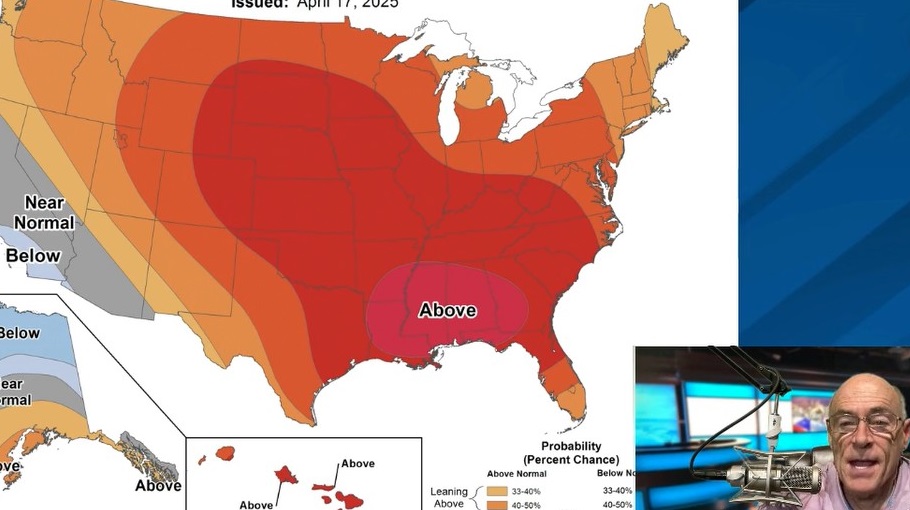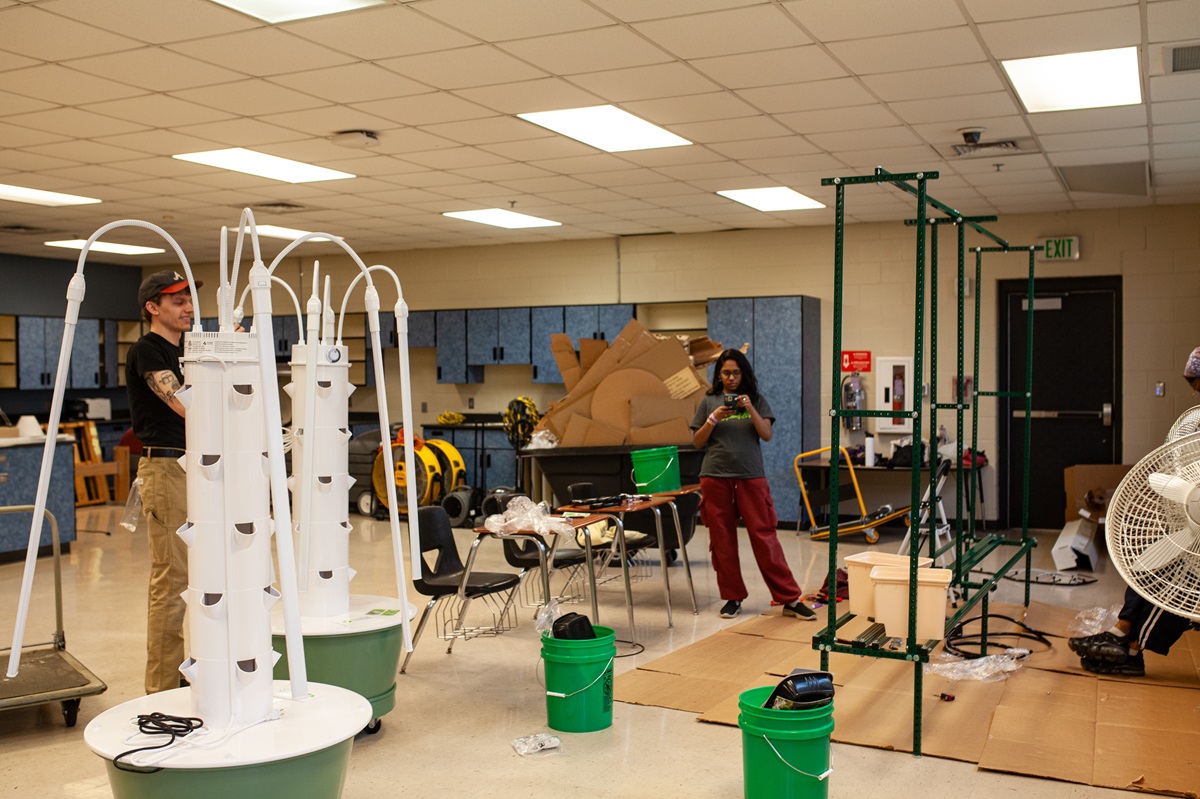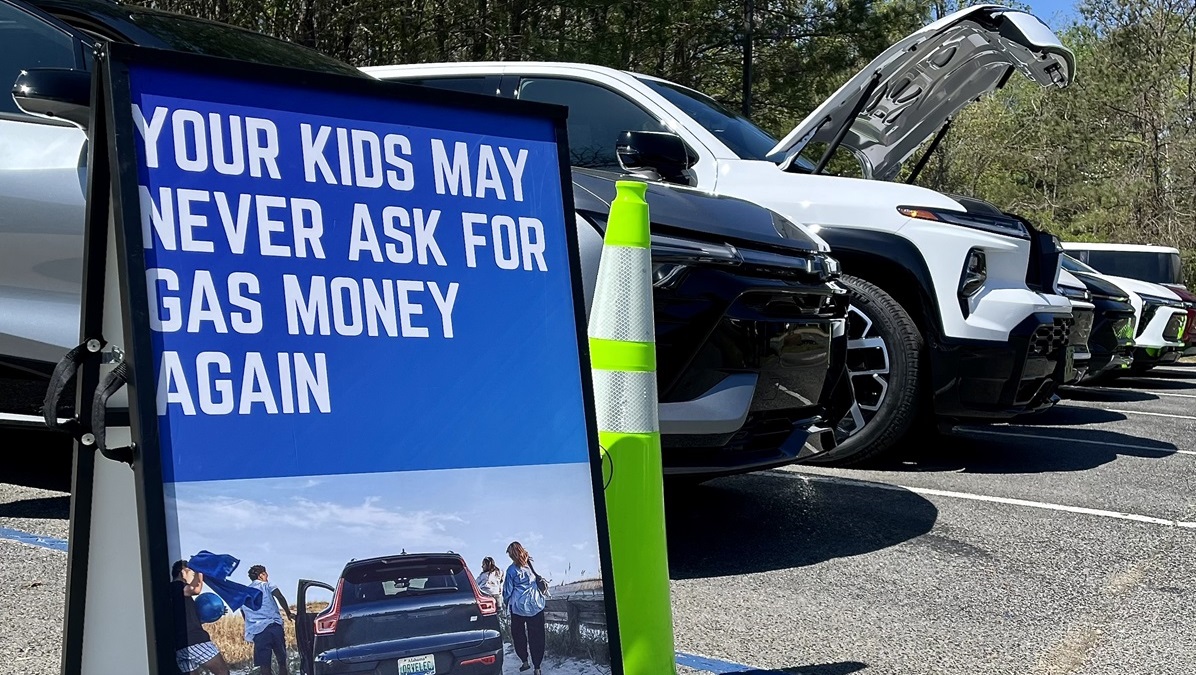EV Summit highlights Alabama’s ties to electric vehicles

There is more to the EV industry in Alabama than personal ownership and public charging stations. (Phil Free / Alabama News Center)
Whether it’s mining of essential elements for batteries, advanced manufacturing and the associated high-paying jobs or just freedom from the pump for owners, electric vehicles (EVs) are a vital part of Alabama’s future.
Those were among the assertions at the recent Drive Electric Alabama EV Summit at the Birmingham-Jefferson Convention Complex. Presented by the Alabama Automotive Manufacturers Association (AAMA), the summit offered a wide range of reasons why the state wants to see EV growth.
Economic development officials, automotive manufacturers, state agencies, Alabama Power and others weighed in on what they are doing in the EV space.
Mercedes-Benz U.S. International (MBUSI) is making multiple EV versions of its SUVs in Alabama along with a separate battery plant in Bibb County. Hyundai Motor Manufacturing Alabama (HMMA) is making EV and hybrid vehicles in Montgomery and is building its own battery plant on site.
Economic development officials from both the Alabama Department of Commerce and the Economic Development Partnership of Alabama said multiple projects are looking at Alabama for millions of dollars in capital investment that will create thousands of jobs. EV-related projects dominate the list.
A new strategic plan for economic development in the state is expected to include a focus on components of the EV industry.
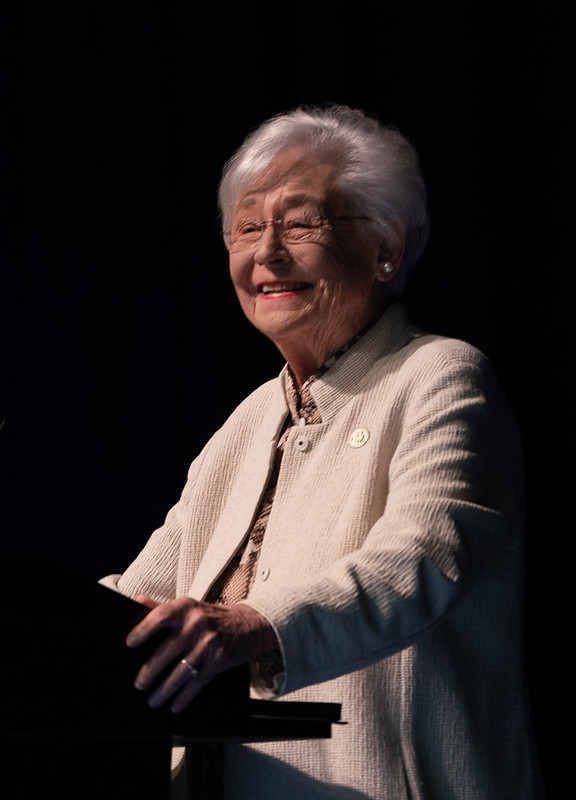
Alabama Gov. Kay Ivey addresses the EV Summit. (Hal Yeager / Governor’s Office)
“Thanks to the dedication of so many people here today, our state remains a leader in one of the most transformative industries in the country,” Alabama Gov. Kay Ivey told those at the EV Summit. “As the electric vehicle industry expands its market share, Alabama will be in the driver’s seat.”
Although the purchase of EVs has not taken place as quickly as some had expected, there was around 10% growth in sales this past year, and the cost of an EV is growing more in line with the cost of an internal combustion engine (ICE).
Examining the consumer market is one of many areas that the Alabama Mobility and Power (AMP) Center at the University of Alabama focuses on. The center is a partnership among the university, Alabama Power and MBUSI.
AMP also is home to the Power Research Center and the Battery Research Center, and all are connected to a workforce development component.
“The comprehensive approach is so that we understand how each of the components relate to each other and therefore we’re not creating a solution that causes other problems, so we’re creating a holistic solution,” said Mike Oatridge, executive director of the AMP Center.
The Alabama Department of Economic and Community Affairs (ADECA) is tasked with growing out the public infrastructure of charging stations in the state.
RELATED: Alabama revving up EV charging station expansion
That infrastructure is important for EV owners in the state as well as those passing through.
“Think about the beach traffic. We’ve got to get it where people coming from all over the country to our beaches, they can charge cars in Alabama,” said Michael Staley, president of the Alabama Clean Fuels Coalition. “We’ve got a lot of chargers coming online.”
The availability of chargers helps reduce range anxiety, one of the barriers preventing some buyers from purchasing an EV. Another is the price of EVs and the home infrastructure. Companies like Alabama Power are helping address some of those concerns.
“For residential customers, we offer our nighttime charging discount. So if you have an electric vehicle and you charge between 9 p.m. and 5 a.m., you get a discount on your power bill. It’s a whole home discount, so not only just on your EV, but all the electricity consumption during those hours,” said Hasin Gandhakwala, Electric Transportation manager with Alabama Power. “We also have a $500 charger rebate. So if you install a Level 2 charger in your home, that $500 helps offset those infrastructure costs of the installation of the charger and the conduit – all the wiring that has to go with it and the managed charging program.”
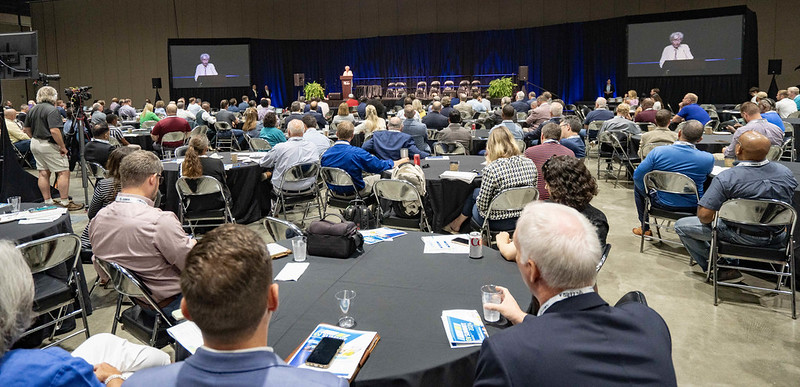
The Drive Electric Alabama EV Summit brought together multiple entities with ties to Alabama’s EV ecosystem. (Hal Yeager / Governor’s Office)
Gandhakwala said Alabama Power is also working with commercial and industrial customers to help them in the adoption of EVs.
“On the commercial side, we offer our Make Ready rebate,” he said. “So this enables businesses that are thinking about installing EV infrastructure some rebates for installing the equipment.”
Gandhakwala said Alabama Power can also assist with the grant application process for those companies applying for state or federal grants.
More information can be found on those programs at alabamapower.com/EV.
“We want to do what we can to support our customers,” Gandhakwala said. “If our customers choose to drive electric vehicles, we want to be able to offer them programs, rates, incentives that make their journey to new technology a little bit easier.”
Alabama Power is putting its money where its mouth is in that regard.
“There’s a lot of business cases where having an electric vehicle makes sense,” he said. “We demonstrate the leadership there by converting our own light-duty vehicles over to electric. We want to demonstrate that this is a technology that can be applied to other business cases as well.”

Michael Staley, president of the Alabama Clean Fuels Coalition, speaks on a panel at the EV Summit. (Josh Bean / Alabama Clean Fuels Coalition)
Beyond incentives, Staley with the Alabama Clean Fuels Coalition noted other reasons car buyers in Alabama might want to consider an EV for their next purchase.
“People are learning that EVs are very practical, that they’re affordable now and all cars are expensive. So when somebody’s in the new car market looking at an EV, it’s not as scary as it used to be,” he said. “And the prices of the fuel cannot be overstated – how much more you pay for gasoline than you would pay for electricity. And we get gasoline from all over the world from a lot of places that don’t really like us. We get electricity from our backyard where it’s produced in our state and that is domestically produced energy and that’s the way to go.”
Even if the average Alabamian has no interest in owning an EV at this time, Staley said it’s important for everyone to realize the importance of EVs to the state as a whole.
“We have a lot of manufacturing going on. We have a lot of innovation and research going on. And really, altogether it amounts to a bright future for Alabama to stay in the top of the competition when it comes to manufacturing automobiles,” he said. “Our real competition is not another state, it’s another country: China. The only place in North America where there will be battery-grade graphite production is going to be in Coosa County. So those things are exciting for our state. And when people come here, they get the facts. There are hurdles and speed bumps. But at the end of the day, EVs are here and they’re here to stay.”
Ron Davis, president of AAMA, said connecting all of Alabama’s ties to EVs was a major reason why AAMA wanted to hold the second EV Summit. While the first summit two years ago focused more on the technical aspects of EVs, the number of businesses, organizations and consumers with EV ties has exploded in two years’ time.
“Today they all weighed in on the importance of EVs on the state and they weighed in on the things that they’re doing to participate in the growth of EVs in our state,” Davis said. “Producing batteries now in Alabama, that’s a great economic opportunity for the state. So we talked about generational opportunities. You think about your kids and grandkids and what kind of jobs are they going to have. What kind of opportunities? Well, EVs are one of those avenues of opportunity.”

Mike Oatridge, executive director of the Alabama Mobility and Power Center, speaks on a panel at the EV Summit. (Josh Bean / Alabama Clean Fuels Coalition)
Oatridge said opportunities like the EV Summit is critical to keeping the different components of Alabama’s EV ecosystem connected.
“Educating the public is really important,” he said. “People, when they talk about EVs, they don’t really think about the economic development opportunities – the prosperity it could bring to the state, the number of jobs it could bring to the state – and therefore they kind of base their opinion on what they think about the EVs on what it means to them.”
Staley agreed.
“It’s so important for all the different people that support the EV ecosystem in Alabama to have a chance to come together in one place and hear from each other and meet with each other and have displays and have the booths and all the vendors set up,” he said. “It’s evolving so rapidly and it’s having such a great impact on our state.”
Davis said the EV Summit is successful when the same team approach the state uses in economic development is used to bring together all areas of the EV world.
“The state of Alabama is a model for coming together; working as a team and getting results, and that’s what we did to prepare for this event,” he said. “This event wasn’t going to look as successful as it did today without that team effort of those key people working together on the planning committee.”

